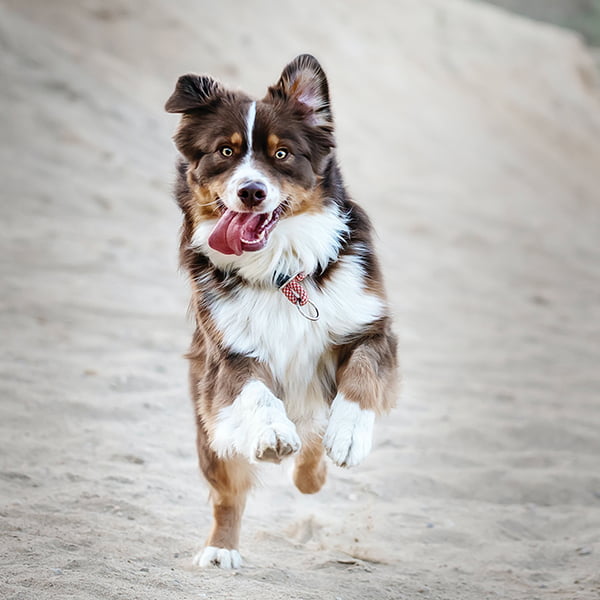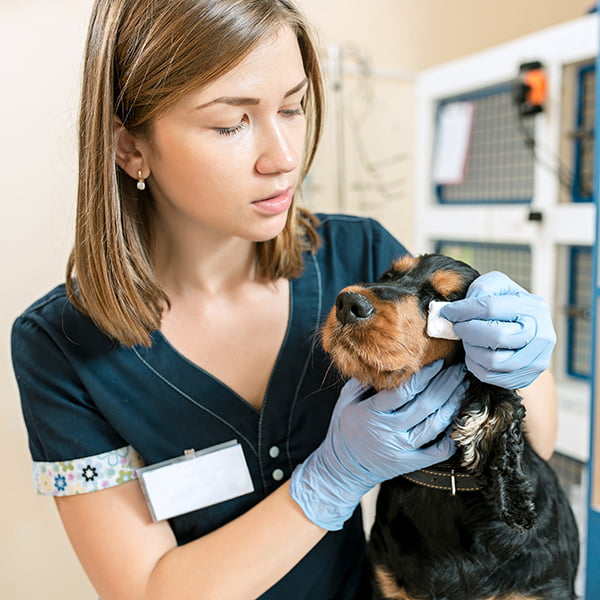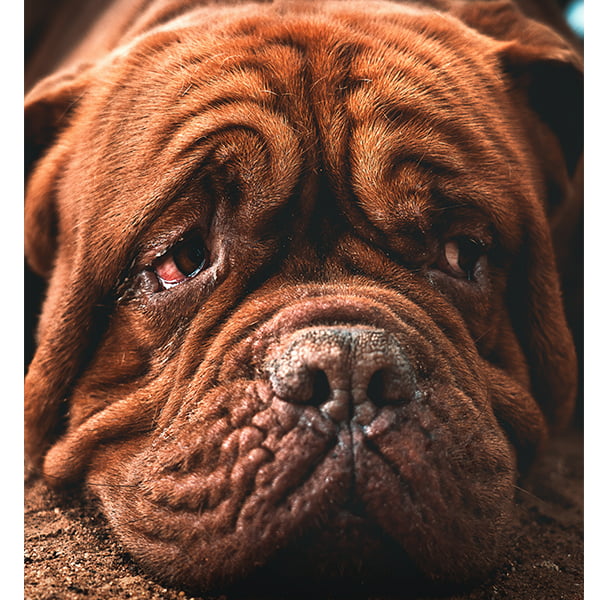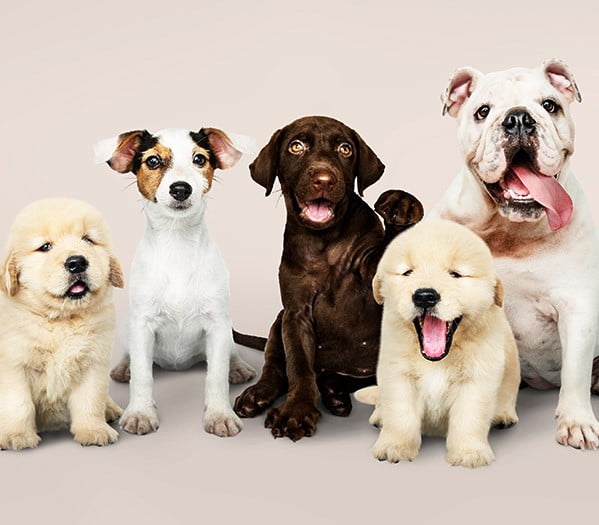Achoo! Is your dog sneezing a lot lately? As a dog owner, it can be challenging to discern if your dog's sneezing is something to draw concern. A dog sneezing every once in a while is usually nothing to worry about or be a concern. Occasional sneezing isn't usually a concern and can be normal in dogs.
But what if you've noticed your dog sneezing more lately? Is that something to be concerned about? What do you do if your dog won't stop sneezing? Why does my dog sneeze so much? What are the possible reasons for dog sneezing, and how can I tell if it is a serious issue or not? If you worry about your dog's health, it's always best to contact your vet immediately and get veterinary advice.
In this article, we will discuss some of the reasons dogs sneeze and how you may be able to help to stop it.
Why Do Dogs Sneeze?
There are a lot of reasons why your dog could be sneezing. Most sneezing in dogs is nothing to worry about, but some indicate a much more serious issue.
Because it can be difficult to narrow it down on your own, it is always best to take your dog to the vet if you suspect their sneezing is more than just the ordinary amount. They will be able to find out the main issues and how to treat your dog effectively.
However, here are a few of the most common reasons, conditions, and issues leading to a dog sneezing more.

Source: Unsplash
Play Sneezing
Excitement during playtime can lead your dog to sneeze, and many dogs do it. This behavior is often referred to as play sneeze. It is a sign of happiness and a way of communicating with other dogs and you. Dog sneezes are also used to signify that they are submissive to another dog.
Symptoms
Sneezing during playtime or excited by something.
Treatment
Playing sneezing is harmless if the symptoms only occur when your dog is happy and excited. If your dog sneezes uncontrollably or has traces of blood, contact your vet to ensure nothing else is happening.
Reverse Sneezing
Reverse sneezing is another type of sneezing that occurs in response to excitement, inflammation, and irritants.
This is often a "sneeze" that occurs suddenly and is a repeated inhalation rather than an exhalation and creates a noise like honking. It also sounds like your dog is having trouble breathing.
Symptoms
Heavy and noisy breathing that sounds like honking, choking, or gagging.
Treatment
Reverse sneezes are usually harmless if they only occur intermittently and occasionally, but they can sound very dramatic. If your dog is experiencing reverse sneezing and it sounds dramatic, try to calm him down to make it stop. Usually, calming them down will resolve the behavior.

Source: Freepik
Allergies or Irritants
A common reason for your dog's sneezing could be related to allergy or seasonal allergies. Dogs can be allergic to all the same things people are, mold, and airborne irritants like dust and pollen. Some dogs can be sensitive to irritants such as perfume, candles, air fresheners, cleaning supplies, and smoke, which could result in a sneezing fit. These unwelcome particles are extremely irritating and can cause dogs to feel uncomfortable.
If your dog's sneezing is accompanied by watery eyes, itching, and licking, you are likely dealing with an allergy of some kind. A vet will help you figure out what your dog is allergic to and will help you find a course of treatment, whether it's seasonal medication or even steroids for serious cases. If your dog is prone to allergies, you can also help boost your dog's immune system.
While food allergies tend to target the skin, coat, and digestive system, they can cause sneezing in affected dogs. For a food allergy, you may need to change your dog's food, and for scented irritants, you may have to switch to unscented or pet-friendly air fresheners or cleaning supplies.
Symptoms
Sneezing, watery eyes, scratching or licking their fur.
Treatment
Once you determine the cause of the flare-up, steer clear of the allergens. Allergy relief medication like antihistamines can be prescribed by a vet if needed.
Foreign Object
If a foreign object gets lodged in your dog's nasal passages, it could result in some sneezing as your dog attempts to dislodge it.
Among the most common foreign objects to get stuck in a dog's nose are seeds, grass, sticks, and pieces of broken toys. A lodged object can quickly lead to infection and further complications, so if you suspect something may be stuck in the dog's nasal passageways, take it to the vet to be removed immediately.
Symptoms
Sneezing, pawing its face, difficulty breathing, sneezing blood, uncontrollable sneezing, sneezing excessively, or swelling.
Treatments
Contact your vet immediately if you suspect that there is a foreign object in your dog's nose. Never attempt to remove it yourself.

Source: Unsplash
Nasal Infection
Viral, fungal, or bacterial infection can cause dogs to sneeze frequently. Nasal infections often result from dental infections, so taking your dog to the vet to get the proper diagnosis is important to ensure the right treatment is taken.
Symptoms
Sneezing, bloody or mucoid discharge, and lack of appetite.
Treatments
Depending on if it is caused by viral, bacterial, or fungal infections, it's best to consult your vet on the medication to alleviate the symptoms and eliminate the infection.
Respiratory Infections
Dogs can be susceptible to fungal or bacterial respiratory infections, which cause your dog to sneeze. Possible causes include canine influenza, kennel cough, upper respiratory tract infections, and respiratory parasites.
Symptoms
Sneezing, coughing, mucus discharge, or lack of appetite.
Treatments
Visit your vet to determine the best treatment plan.

Source: Freepik
Dog Breed
Sometimes a dog's anatomical facial construction is what is to blame for the more sneeze or reverse sneezes. Some dog breeds are more prone to nasal issues because their faces are so short, compression, and flat-faced dogs.
This includes breeds like pugs, Boston terriers, and English bulldogs. If sneezing becomes a serious issue, you can talk with your vet about surgical procedures that might help open up your dog's nasal passageways to make breathing easier.
Symptoms
Sneezing or reverse sneezing.
Treatments
Talk to your vet about surgical procedures if sneezing becomes a serious issue.
Nasal Tumors
This is rare, but older dogs and senior dogs can develop a tumor in their nasal passage, which can cause irritation that leads to sneezing and nose bleeding.
If your dog develops nasal tumors, you may notice a gradual increase in the frequency of your dog sneezing. Therefore, taking your dog to the vet is important if you notice it begins to sneeze frequently.
The gradual increase in frequency can be caused by the tumor's slow growth, which gradually affects your dog's breathing. A vet will be able to help you decide what the best course of action for removing a nasal tumor is. A vet can often be surgically removed, but shrink treatments have also succeeded.
Symptoms
Sneezing, coughing, wheezing, runny nose, and bleeding on the side of the nose.
Treatments
A vet will be able to help you decide what the best course of action is.
Dental Disease
Dental issues can often lead to nasal infections. Some dental problems that could lead to increased sneezing due to infection include tumors in the mouth or gums, an abscess, infected tooth roots, and rotten or damaged teeth.
You can check your dog's mouth for any visible sign of infection or rot, but you will need to see a vet either way since they will best know how to clean or manage any damage or infection.
Symptoms
Sneezing, foul breath, reduced appetite, pain while chewing, unexplained loss of teeth, drooling.
Treatments
This condition usually requires emergency veterinary care, but do contact your vet if dental disease is suspected, as they can help determine the best course of action.
Nasal Mites
Nasal mites are tiny bugs that dogs pick up from digging and nosing in the dirt. These little mites will cause sneezing, and your dog's nasal discharge will be thick or even bloody.
Symptoms
Sneezing, itching, nasal discharge
Treatments
Treatable by a vet
Asthma
If your dog has respiratory or lung issues, one of the symptoms could be excessive sneezing. If your dog is sneezing and wheezing, it could be a sign that your dog has asthma.
Symptoms
Sneezing, wheezing, shortness of breath
Treatments
Discuss with your vet medication to treat your dog's asthma.
Other Symptoms to Look Out For
While the occasional sneeze is generally nothing to be concerned about, if you notice your dog suffering from additional symptoms or the frequent sneezing seems unusually forceful, there could be something amiss. Other signs and symptoms to be on the lookout for include—
- Nasal swelling
- Bloody nasal discharge
- Fever
- Reduced appetite
- Lethargy
You should speak to your vet immediately if your dog shows any of these signs.
